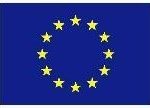HEAL welcomes the call from 250 scientists urging the European Commission to follow scientific recommendations and include provisions to account for the effects of chemical mixtures to better protect health in the upcoming revision of REACH, the EU’s regulation for chemicals.
 6 December 2022, 16:00 – 16:45 CEST
6 December 2022, 16:00 – 16:45 CEST
- Click here to watch the recording of the webinar
- Click here to download the presentation slides
Pregnant women are ubiquitously exposed to a plethora of nonpersistent chemicals found in commonly used consumer products and via their diet, such as phthalates, bisphenols and organophosphate pesticides [1].
Scientific research shows that all these chemicals are able to cross the placental and blood–brain barriers and have the potential to cause permanent developmental changes to the fetus, and are thus a growing public health concern. What’s more, because these chemicals are nonpersistent, their contribution to adverse health effects may be preventable via interventions in a relatively short period of time.
Join us for a special webinar organised by the ATHLETE research project in collaboration with the Health and Environment Alliance (HEAL), where Dr. Kelly Ferguson (NIEHS) will present her work on prenatal exposure to nonpersistent chemical mixtures and fetal growth. The ATHLETE project aims to better understand and prevent health effects of numerous environmental hazards and their mixtures, starting from the earliest stages of life.
During the webinar, Dr. Ferguson will discuss recent research findings into how prenatal exposure to a mixture of phthalates, bisphenols and organophosphate pesticides can influence fetal growth in early pregnancy and later affect birth weight. Joint exposure to nonpersistent chemicals may adversely impact fetal growth, and because these exposures are widespread, this impact could be substantial.
Featured speakers:
 Kelly Ferguson, Ph.D., M.P.H., leads the Perinatal and Early Life Epidemiology Group and holds a secondary appointment in the NIEHS Reproductive & Developmental Biology Laboratory.
Kelly Ferguson, Ph.D., M.P.H., leads the Perinatal and Early Life Epidemiology Group and holds a secondary appointment in the NIEHS Reproductive & Developmental Biology Laboratory.
The Perinatal and Early Life Epidemiology Group conducts research on how maternal exposure to chemicals impacts pregnancy and the development of the fetus and child. They also investigate inflammation and oxidative stress as biological mechanisms that may connect chemical exposures to adverse birth outcomes. Each research study addresses one or more of the following focus areas:
- Optimal exposure assessment, including examination of chemical mixtures
- Understanding biological mediators
- Outcome phenotyping
- Robust validation of associations
Ferguson is specifically trained in chemical exposure assessment, reproductive health endpoints, advanced statistical methods, and epidemiologic study design. She earned her M.P.H. in Occupational and Environmental Epidemiology and Ph.D. in Environmental Health Sciences from the University of Michigan School of Public Health. She joined the NIEHS Epidemiology Branch as a Tenure-Track Investigator in 2016.
 Natacha Cingotti is the Health and Chemicals Programme Lead at the Health and Environmental Alliance (HEAL), advancing European policies and initiatives for a toxic-free future. She leads HEAL’s EU and national advocacy on main priority dossiers, including the increased identification and regulation of endocrine disrupting chemicals, the faster ban of harmful pesticides, and the more health-protective implementation of the EU flagship chemical regulations REACH and CLP.
Natacha Cingotti is the Health and Chemicals Programme Lead at the Health and Environmental Alliance (HEAL), advancing European policies and initiatives for a toxic-free future. She leads HEAL’s EU and national advocacy on main priority dossiers, including the increased identification and regulation of endocrine disrupting chemicals, the faster ban of harmful pesticides, and the more health-protective implementation of the EU flagship chemical regulations REACH and CLP.
Natacha represents HEAL in the EU Commission, European Parliament and member states fora as well as the EU Chemicals Agency. She is also a frequent contributor to radio, TV and print media across Europe on the opportunities to prevent diseases through more ambitious and coherent EU chemicals policies. She strives to stimulate and build up the engagement of HEAL’s members (such as cancer, health and environmental groups) into European chemicals advocacy and campaign work, while developing new partnerships with health professionals (such as the International Federation of Gynecologists and Obstetricians) and researchers (through HEAL’s chemicals programme participation into several EU-funded research projects).
This webinar will last for 45 minutes and be moderated by Genon K. Jensen, Executive Director at HEAL.
For more info, please contact HEAL’s EU Research Projects Coordinator, Julianna Angelova: julianna@env-health.org



